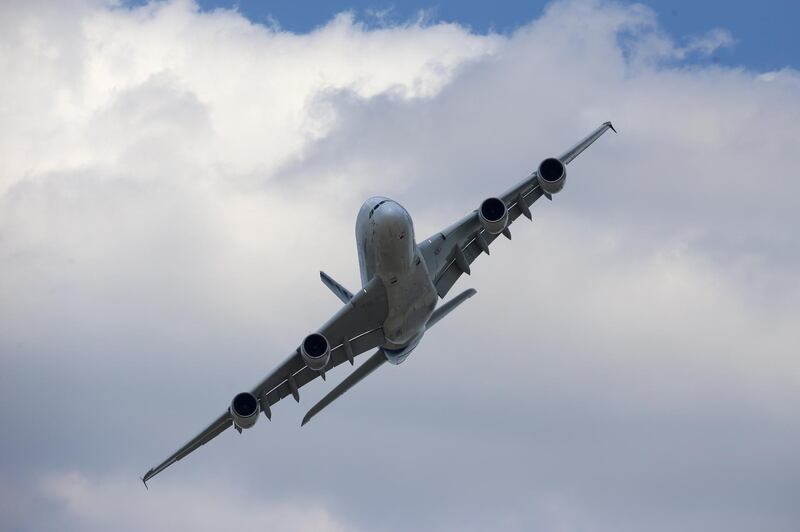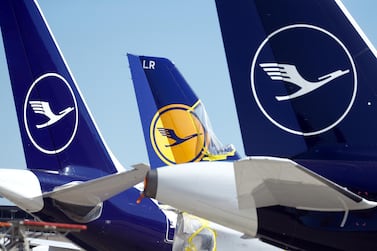Iran is considering plans to reduce the fee it charges international airlines for flying over its airspace, as it looks to entice more operators to utilise its airspace amid dwindling air traffic due to Covid-19 and geopolitical tension.
The country will offer incentive packages to the eight airlines that most frequently use its airspace to encourage more business, Nasser Aghaei, director of Iran Airports and Air Navigation Company, said on Saturday, according to state-run news agency IRNA.
The discounts would also extend to airlines increasing their flights by 20 per cent, Mr Aghaei said.
The plans have yet to be approved by the government
Aviation regulators typically charge overflight fees to foreign operators who fly their aircraft in the airspace controlled by that nation, even if the planes do not land or take off there.
Calculating overflight fees is a complex process and countries use different criteria to determine the costs they charge for aircraft to fly over their sovereign airspace, such as the distance travelled or the weight of the plane.
Countries charge a fee for airlines to fly into, out of or through their airspace, similar to levying a toll on vehicles using a highway.
With its economy battered by US sanctions, Iran reached out in March to the International Monetary Fund for $5 billion (Dh18.3bn) in emergency funding to fight off the virus that has ravaged the country.
Iran’s economy was projected to have contracted 9.5 per cent last year after shrinking 4.8 per cent in 2018.
It is expected to contract 6 per cent this year while inflation is projected at 34.2 per cent, the fund said.
The value of the rial has plummeted against the dollar since the US withdrew from the nuclear agreement and imposed sanctions on the country.
The dollar traded at a record low of 194,500 rials yesterday, below Iran’s official rate of 42,000 rials, according to foreign exchange website Bonbast.com.
Overflight fees are a valuable source of income for countries and the funds collected are usually directed towards funding air traffic control at busy airports, providing aeronautical information to pilots, interpreting weather data and providing timely reports on missing or overdue flights.
How far a country benefits from charging overflight fees depends on its strategic location, the size of its airspace and the rates it charges.
Variations in fees can affect airlines’ costs, cause prices to fluctuate and routes to change.
Costs are transferred to travellers while airspace restrictions can limit the options available to reach certain destinations. When airlines are not allowed to use a certain airspace, they are forced to redirect their aircraft, which lengthens the flight time and leads to an increase in fuel costs.
The Gulf airspace is generally congested, and Iran is a busy air corridor for some long-haul airlines.
Before the coronavirus pandemic, geopolitical tension between Iran and the US forced major airlines to reroute or cancel their flights in January to avoid the airspace over Iran.
Iran’s planned discount on overflight fees comes at a time when airlines are calling on governments for financial aid and reduced charges as they battle for survival.
The International Air Transport Association called for financial assistance that does not inflate the industry’s debt levels, which have ballooned during the pandemic.
Some governments are exploring measures that include subsidies for domestic operations and waivers for airport and air traffic control charges.
“While airports and air navigation service providers have suffered revenue falls, steep increases in charges must be avoided during the restart period as this will severely [affect] airline financials and market recovery,” the regulator said.







